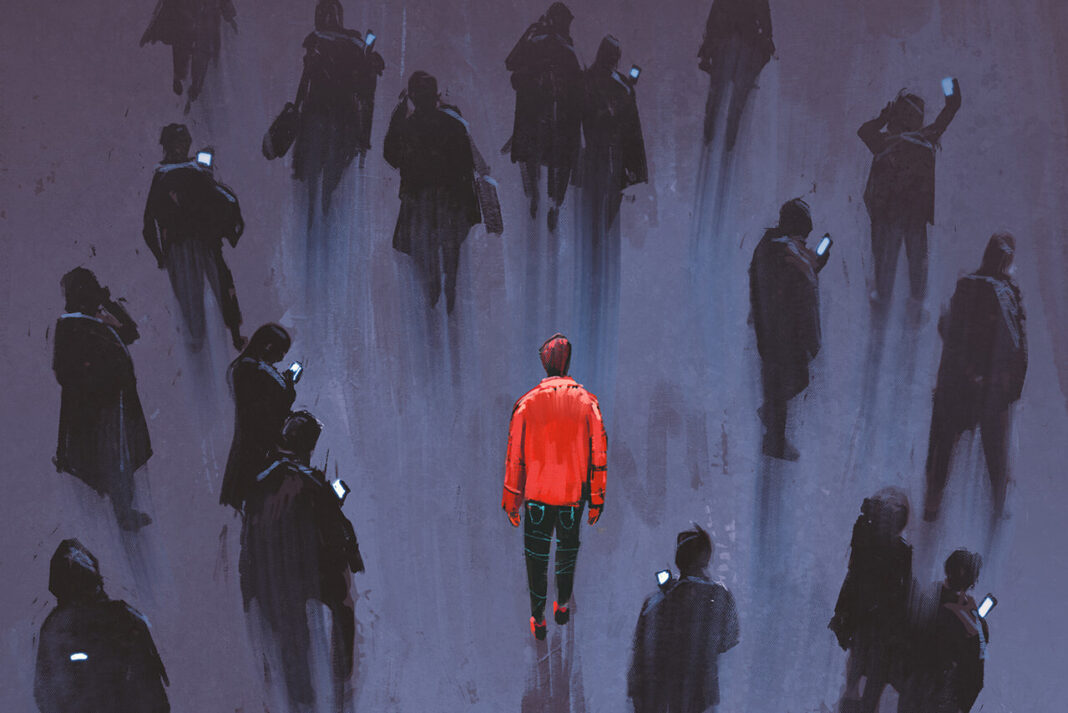Have you ever said to yourself, “I will never be like this person”? Sometimes, we are so afraid of becoming like someone we were exposed to when we were younger that we avoid even feeling the emotions they felt. When we do experience those emotions, intense anger and shame take over us. A voice inside us shouts, both ashamed and angry. Then, we realize that our life has become about avoiding that judgmental voice. More precisely, our life has become about avoiding the emotion that the person we fear becoming feels. Sometimes, this voice is the one where we fear our anger in order not to become like the caregiver whose destructive anger we experienced, sometimes it is the place where we turn up our nose at our own helplessness in order not to become like the person we saw in despair, and sometimes it is the place where we are angry at our own fears because we witnessed someone giving up on themselves due to their fears. The fear of becoming like this person has become so ingrained in the deep layers of our mind, so pushed into our unconscious, that when we experience these emotions that we attribute to them, we don’t even understand why we feel ashamed or why we are angry at ourselves. These emotions appear even in the smallest details, and most of the time, we struggle to make sense of them. Sometimes these emotions come from not being able to wake up at the time we told ourselves, like our mother who couldn’t wake up at the time she promised, or from being late like our father who was always late, or from not being able to eat healthily like our sibling who blames themselves for not eating healthy.
The more we try to avoid that bad emotion in order not to become like the person we attribute it to, the more we get caught by it. In reality, that emotion is not exclusive to that person. Emotions are unique to every mind, to every person. When we feel helpless, we are not the helpless mother in front of our eyes; when we get angry, we are not the father who breaks everything with his destructive anger; or when we are afraid, we are not the sibling who gives up on themselves because of their fears. Because no emotion belongs to one person. When we accept this, when we begin to separate our emotions from them, we stop running and start fighting. Fighting is harder than running. Because there are always defeats in battle. The one who experiences the fewest defeats is considered to have won. Sometimes, in this battle, we lose the things we believed in, the people we idealized. And sometimes, we lose ourselves in order to find it again.
In this war, we gradually begin to gain awareness and understand the reasons behind our behaviors. Despite all the pressures, we start to get to know ourselves. First, we see: we see our shame because of the emotion we’re feeling. Then we feel that shame, we stay in that shame, and staying in this emotion makes us realize that the emotion we are feeling is the same as the emotions of the person we fear becoming. Then we digest this awareness. And the last part is the hardest. It is to separate the person we fear becoming from our own emotions and to accept our helplessness, fear, and anger. As the first step, we can find the differences between our own feelings and the feelings of the person we fear becoming. Then, we need to constantly remind ourselves that it is normal to feel this emotion and that just because we feel it, we will not become that person. By saying this to ourselves out loud repeatedly, we will begin to form new neural pathways in our brain. Trying to feel the emotion we’ve been avoiding will also strengthen these pathways. Our brain has a structure that learns through repetition. Continuously suggesting this to our brain is also a form of repetition, and it helps us form new neural networks. The most beautiful part comes at the end; acceptance… accepting ourselves, accepting our emotions. Once we accept ourselves as we are, everything gains meaning again, we gain meaning again.


